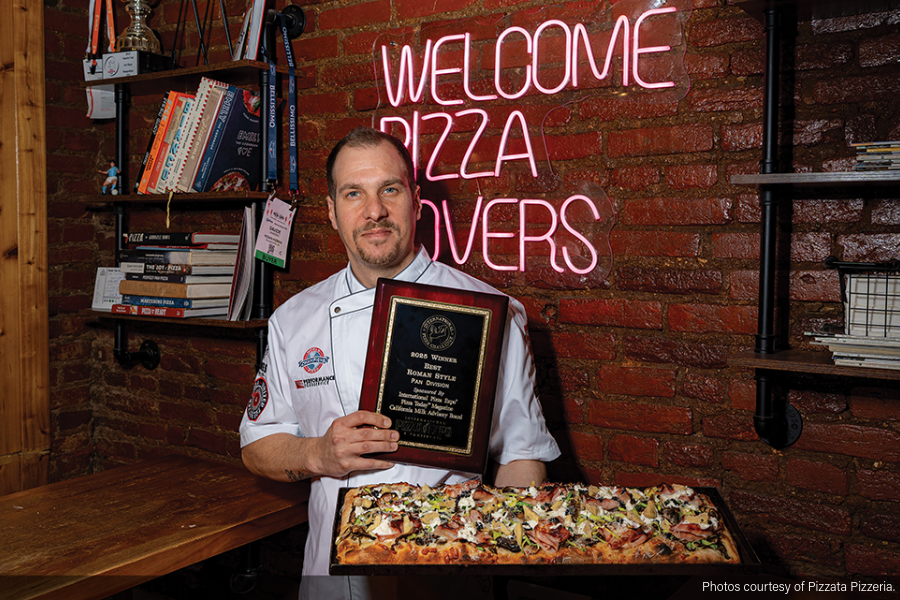 Control pests before they control your pizzeria
Control pests before they control your pizzeria
The lower 48 states experienced one of the mildest winters on record. News services across the country have reported that the easy winter has made way for an above average bug filled summer.
Dr. Zia Siddiqi, director of quality systems at Orkin, says the pest control company has experienced a 25-percent increase in calls in recent months. Pests that are expected to be more problematic in 2012 are ants, flies and rodents, he adds.
But, pests don’t have to be a problem in your restaurant. It’s up to operators and managers to take a proactive role in preventing insects and rodents from making themselves at home.
Not taking preventative measures can result in dire consequences on your business. Health departments have strict policies when it comes to pests. Gretchen Boyd, Environmental Health Supervisor at the Louisville Metro Health Department in Kentucky says, “How our system works is that activity observed of a rodent, insect or pest is a critical violation and that would cause your facility to fail that inspection.” A facility that fails may have an allotted time to correct the violation — in Louisville’s case, it’s seven to 10 days.
If an infestation has taken up residence, Boyd says they close the restaurant on the spot. “We would require them generally to clean and sanitize, to come up with some kind of pest control means and we do not want to observe any on our follow up visit,” she says, adding that an operator must provide documentation of what measures have been taken.
Many operators contract a pest control company to treat their facilities on a monthly basis. Some clients approach pest control with only pesticides treatments, Siddiqi says. “Things have shifted from that angle,” he continues. “If the restaurant owners are not taking care of elimination of conducive conditions — sanitation, building maintenance, housekeeping — then we are not going to win the war.” Integrated pest management (IPM) programs have become a popular mode to keep pests at bay.
“Integrated pest management — I’m applying all kinds of strategies,” Siddiqi says. “I’m identifying, I’m monitoring, I’m establishing my threshold, and then I am making recommendations, first for non-chemical and then for chemical.”
Chuck Landaw, owner of Doughy Joey’s Peetza Joynt in Waterloo, Iowa, says he has a strong relationship with his local pest control company, which uses an IPM approach.
“I can call them anytime if I have a problem,” he says.
“He will tell me what they are and how to attack the problem.” His service ranges $50 to $100 per month depending on what is needed.
Doughy Joeys is blocks from a river so Landaw pays attention to warning signs of insects, particularly ants and gnats. With two locations serving draft beer — eight beers on draft at one and 24 beers at another — Landaw has noticed that gnats are attracted to the yeast in beer drains. His crew applies cleaning solutions down the beer drains regularly and increases the cleaning in the spring, summer and fall.
Jason Ransom, co-owner of The Dish Famous Stuffed Pizza in Liberty, Missouri, also has a pest inspector come in once a month. “The inspector has a list and is checking for things that he thinks are critical,” he says. The inspector also reviews the list with the manager on duty.
Ransom says keeping pests under control comes down to a few things. “The key is to make sure you have a secure perimeter, your restaurant stays dry and a pest program is in place.”
Siddiqi offers several preventative tips, inside and outside, to keep pests out of your restaurant.
They include:
- Keep the back door closed.
- Use a flashlight and search for cracks and openings inside and outside and seal them.
- Do not allow any standing water, even sitting in mop buckets or under ice machines.
- Inspect all deliveries for insect or rodent stowaways.
- Clean, clean, and clean surfaces; drains; equipment; floors; walls; and behind, over and under everything regularly.
- Be sure your air handling system is producing positive pressure (Flies will not cross a velocity of 1,600 cubic-feet per minute).
- Keep lights away from the building, doors and outdoor seating, instead put lights in lawn or on posts and project them at building, signage, etc.
- Allow two to three feet of space between trees, shrubs, branches or leaves and the building.
- Have garbage removed twice a week in warmer weather and spray out the cans or dumpster after each removal.
Denise Greer is associate editor at Pizza Today.






